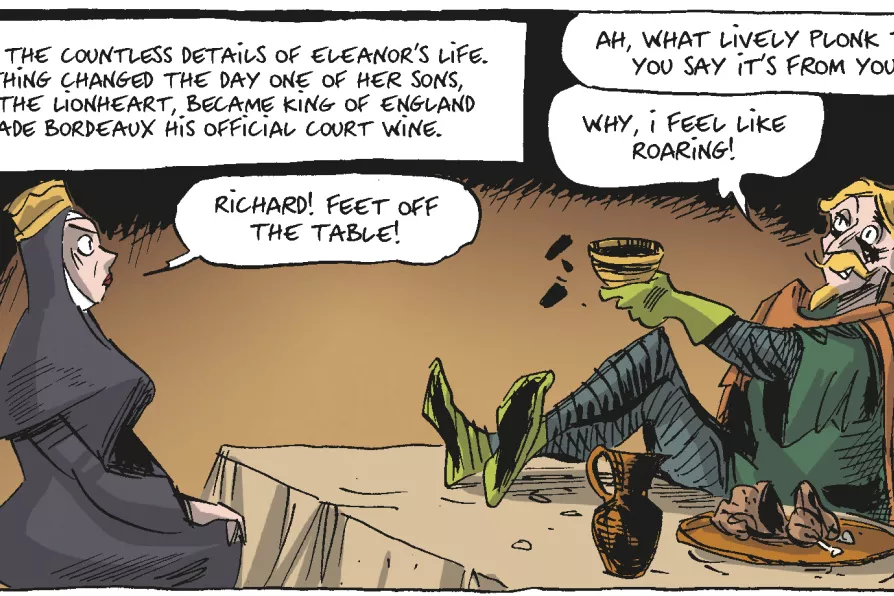GORDON PARSONS applauds a marvellous story of human ingenuity and youthful determination, well served by a large and talented company
Wine: A Graphic History by Benoist Simmat and Daniel Casanave
Engaging meander through millennia of fermentation


GAGGING for a pint, or maybe a glass of wine? Malbec perhaps, in an establishment dedicated to such beverages? Pubs, I believe they used to be called.
Spare a thought for Noah then, who, after 150 days aboard the ark, first had to plant grape vines before he could enjoy a cup or two of the good stuff.
Similar stories

Peter Mitchell's photography reveals a poetic relationship with Leeds

Ben Cowles speaks with IAN ‘TREE’ ROBINSON and ANDY DAVIES, two of the string pullers behind the Manchester Punk Festival, ahead of its 10th year show later this month

In an exhibition of the graphic art of Lorna Miller, MATT KERR takes a lungful of the oxygen of dissent
Read Sisters, the journal of the National Assembly Of Women, below.









